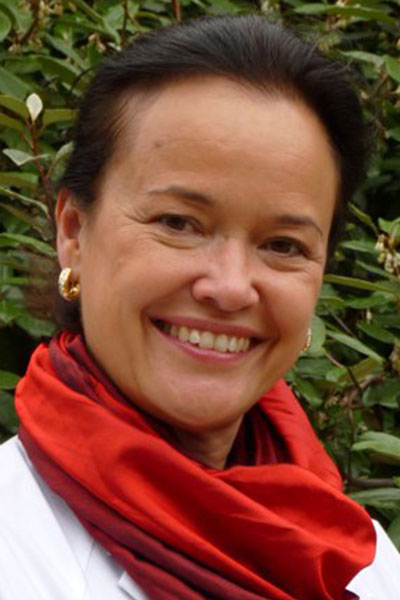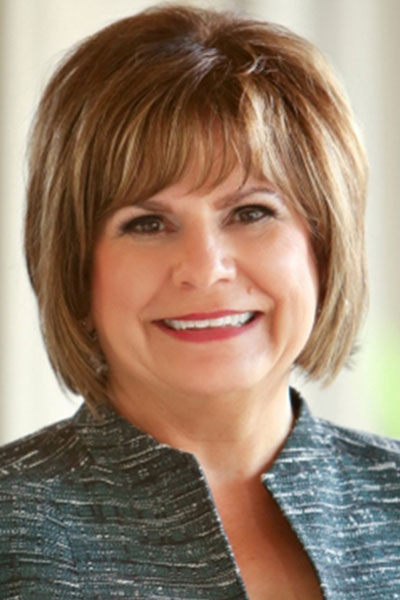Three concurrent Special Sessions will kick off the scientific programming on Tuesday, December 5, at the 2023 SABCS® at the Henry B. González Convention Center in San Antonio. The sessions cover new drug approvals, prevention and detection, and social determinants of health, offering a spectrum of cancer science to Symposium attendees. The Special Sessions are scheduled for 12:00 p.m. – 1:55 p.m.

Special Session 1: New Drug Approvals for Metastatic Breast Cancer, will be held in Hemisfair Ballroom 1-2, and it will be moderated by Laleh Amiri-Kordestani, MD, clinical team leader and cardio-oncology liaison, U.S. Food and Drug Administration; and Martine J. Piccart, MD, PhD, Director of Medicine, Institut Jules Bordet, Bruxelles, Belgium.
Three presenters will give updates on new drugs, including some that are still under review:
- Elacestrant
Mirat Shah, MD, U.S. Food and Drug Administration
- Trastuzumab deruxtecan
Preeti Narayan, MD, U.S. Food and Drug Administration
- Late breaking (new drugs currently under review)
Christy Osgood, MD, U.S. Food and Drug Administration
The session will also include a discussion with the following panelists:
- Janice Cowden, Metastatic Breast Cancer Alliance
- Virginia Kaklamani, MD, UT Health San Antonio
- Vassiliki Karantza, MD, PhD, Merck Research Laboratories
- Flora Mulkey, MS, U.S. Food and Drug Administration
- Aarón Sosa Mejia, MD, European Medicines Agency, Copenhagen, Denmark
“The FDA has really paid attention to possible ways to approve drugs sooner,” Dr. Piccart said. “The general philosophy of the FDA, I think, is important for us to understand. It will be quite a useful tool to have this interaction and be able to discuss with them how they examine data and make their decisions.”
Special Session 2: Prevention, Early Detection, and Interception, will be held in the Stars at Night Ballroom 3-4, and it will be moderated by Carol J. Fabian, MD, Director, Breast Cancer Prevention and Survivorship Center, University of Kansas Medical Center.
Three presenters will talk about polygenic risk score, managing vasomotor symptoms, and hormone use in BRCA mutation carriers, and the presentations will be followed by a panel discussion.
- What is polygenic risk score, and how is it used?
Suzette Delaloge, MD, MSc, Gustave Roussy, Villejuif, France
- Hormone replacement and alternatives for relief of vasomotor symptoms in women at increased risk for breast cancer
Carol J. Fabian, MD, University of Kansas Medical Center
- Cancer risk associated with exogenous hormone use in BRCA mutation carriers
Joanne Kotsopoulos, MSc, PhD, Women’s College Research Institute, Toronto, Ontario, Canada

Special Session 3: Social Determinants of Health: Impact on Cancer Care, will be held in the Stars at Night Ballroom 1-2, and it will be moderated by Amelie G. Ramirez, DrPH, MPH, Director, Institute for Health Promotion Research, UT Health Science Center at San Antonio.
There will be six presentations during this session, followed by a panel discussion.
- What are social determinants of health and why are they important to cancer care?
Amelie G. Ramirez, DrPH, MPH, UT Health Science Center San Antonio
- Multilevel barriers to addressing social risks: Data from select NCI cancer settings
Brenda Adjei, EdD, MPA, National Cancer Institute
- How do hospitals/clinics utilize SDoH data?
Brian M. Rivers, PhD, MPH, Morehouse School of Medicine
- Once social determinants of health are determined, what processes need to be in place to reduce the burden on patients?
Sandi L. Pruitt, PhD, UT Southwestern Medical Center
- How is the impact of SDoH being evaluated at clinical/hospital and community levels?
Susan T. Vadaparampil, PhD, MPH, H. Lee Moffitt Cancer Center & Research Institute
- Screening for health-related social needs, and now what?
Barbara Segarra-Vazquez, DHSc, University of Puerto Rico Medical Sciences Campus
“If we are going to truly make an impact to reduce breast cancer, we must change our health care systems to provide equitable and culturally and linguistically competent cancer care, and increase diversity in clinical trials,” Dr. Ramirez said.
Special Session 3 meets the Texas Medical Board criteria for formal continuing medical education involving the study of medical ethics and/or professional responsibility.

